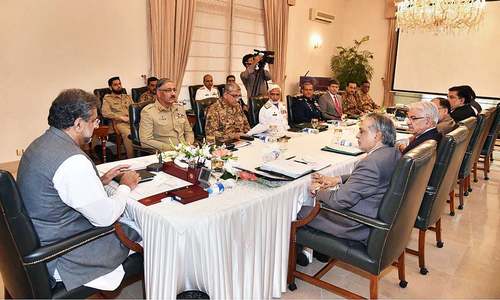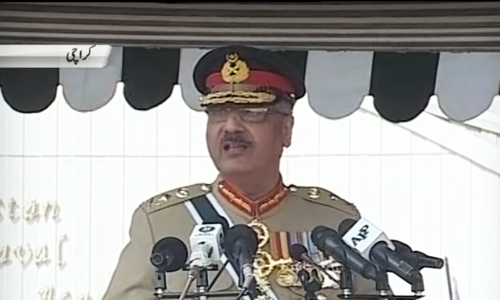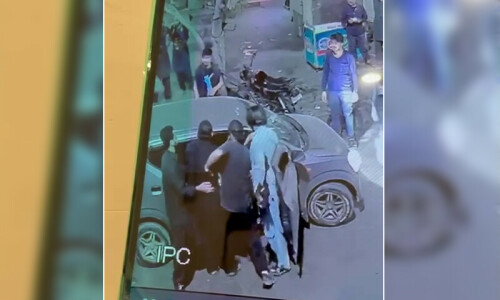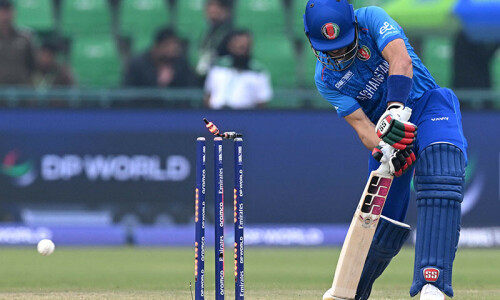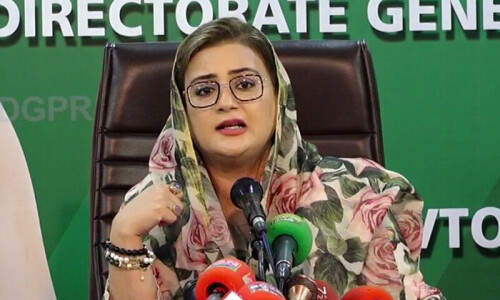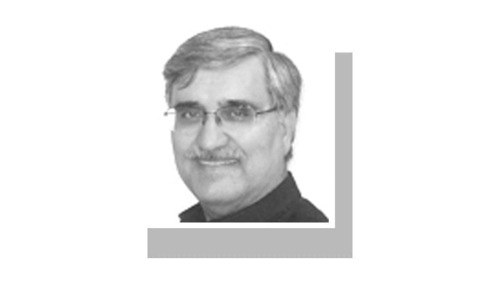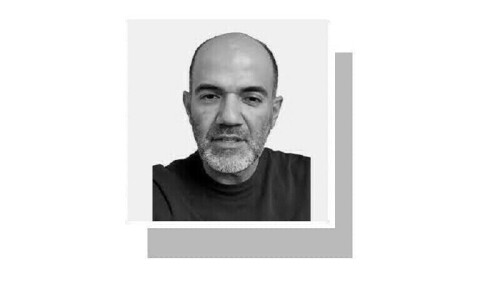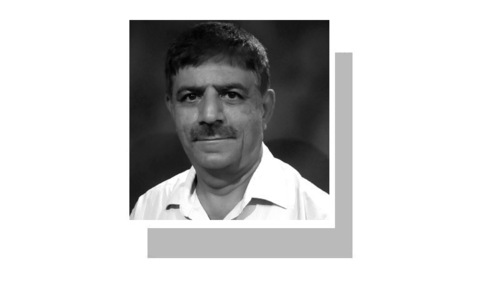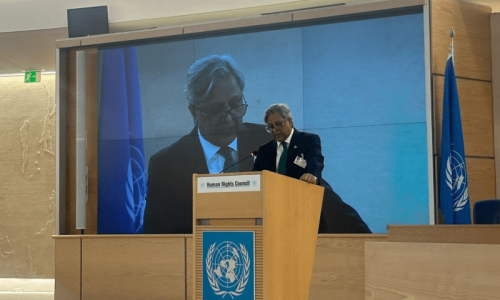Pakistan 'export factory for terror', Indian FM says at UNGA
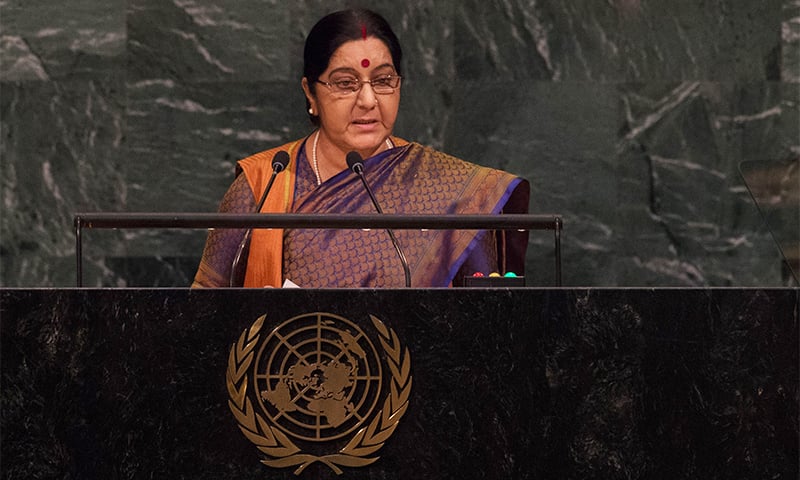
India's foreign minister took a swipe at Pakistan on Saturday, telling the United Nations (UN) that Islamabad had given the world "terrorists" while India was producing top-notch doctors and engineers.
"Why is it today India is a recognised IT superpower in the world, and Pakistan is recognised only as the pre-eminent export factory for terror?" Sushma Swaraj told the General Assembly.
"We produced scholars, doctors, engineers. What have you produced? You have produced terrorists," she said.
Indian Prime Minister Narendra Modi stepped up a drive to isolate Pakistan diplomatically after the Uri army base attack in Sept 2016 in which 19 Indian soldiers were killed.
Hours after the attack occurred, Indian Home Minister Rajnath Singh had termed Pakistan a 'terrorist state' and accused Pakistan of involvement ─ a claim that Islamabad has denied.
Following the attack, Swaraj at the UNGA last year had said that it was time to identify nations who "nurture, peddle and export terrorism and isolate them if they don't join the global fight against terrorism."
Read more: Isolate nations which nurture, peddle and export terrorism: Indian foreign minister at UNGA
Pakistan rejects these allegations, maintaining that India is responsible for financing and carrying out subversive activities, especially in Balochistan and Karachi, which it illustrates with the example of Indian Research and Analysis Wing agent Kulbhushan Jadhav, who was arrested in Balochistan last year.
It also claims India has been attempting to sabotage the China-Pakistan Economic Corridor (CPEC).
Eight Indian 'undercover operatives' posted as diplomats in Islamabad were found in Nov 2016 to allegedly be involved in subversive activities, including attempts to disrupt the China-Pakistan Economic Corridor (CPEC) and create fear and chaos in the country. They were also alleged to be building a network of informants within Pakistan and fabricating evidence for tarnishing the country’s image abroad.
Read more: Indian, Afghan agencies supporting terror in Pakistan: IB chief
Swaraj on Saturday also offered a response to Prime Minister Shahid Khaqan Abbasi's address, who at the UN podium accused India of "massive and indiscriminate force" in Kashmir.
PM Abbasi, in his UNGA speech, had urged an international investigation into Indian atrocities in held Kashmir, and warned of escalation along the Line of Control (LoC).
"Pakistan has acted with restraint. But if India does venture across the LoC, or acts upon its doctrine of limited war against Pakistan, it will evoke a strong and matching response," he said.
Human rights violations by India in India-held Kashmir clearly constitute war crimes and violate the Geneva Conventions, Abbasi had said, adding that India refuses to implement the UN Security Council resolution on Kashmir that mandates a UN-supervised plebiscite for the people of Jammu and Kashmir "to freely decide their destiny".
"India's deployment of 700,000 troops in IHK to suppress Kashmiri movement is the most intense foreign military occupation in recent history," he said.
Abbasi urged the international community to call on India to halt pellet gun attacks on unarmed Kashmirs, stop "use of rape as instrument of state policy", end media blackouts, rescind its "draconian emergency laws", and free all Kashmiri political leaders.
Prior to his UNGA speech, Abbasi had also met with UN chief Antonio Guterres and apprised him of ceasefire violations by Indian Border Security Forces on Friday that killed six people and injured 20 others in Sialkot across the Working Boundary. He also handed Guterres a dossier on Indian atrocities in held Kashmir.
Relations between India and Pakistan have been tense in recent times, mainly over Kashmir.
India accuses Islamabad of training, arming and infiltrating militants into Kashmir, a claim that Pakistan has denied repeatedly.






